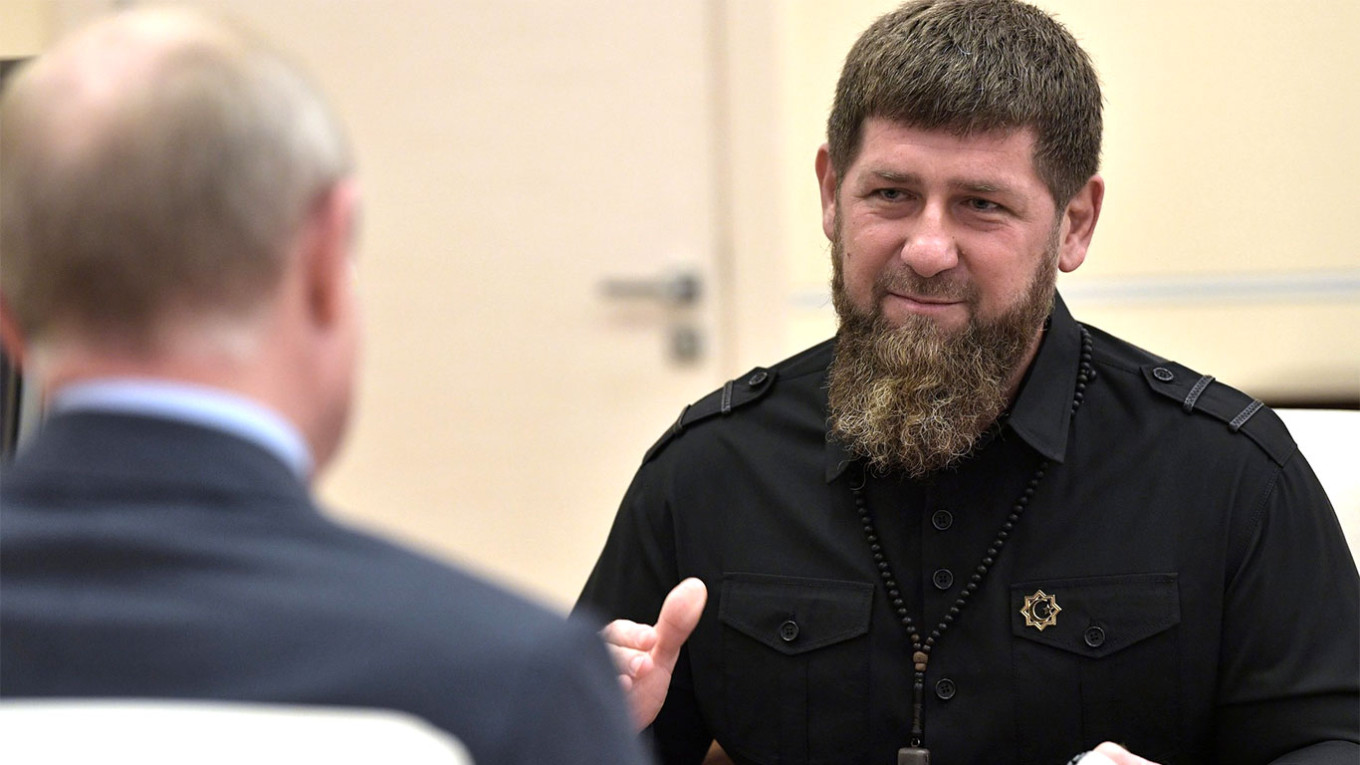The longer Russia’s invasion of Ukraine continues, the more prominent the party of war becomes at home. Hardly a day goes by without a headline-making statement by the most outspoken ultrapatriotic, anti-Western hawks, such as Chechen leader Ramzan Kadyrov, the businessman Yevgeny Prigozhin, and former president Dmitry Medvedev.
All three men have used their vocal support for the war to raise their public profile, but have they actually gained any more influence as a result? After all, in the Russian power system, a person’s importance is determined not by their media activity, but by one man only: Russian President Vladimir Putin.
At the beginning of Russia’s “special military operation” in Ukraine, the Russian elite was divided into war and peace camps. The latter was made up of the regime’s many technocrats, any remaining liberals within the system, and influential businessmen. They were shocked by the outbreak of war, but quickly found themselves having to try to mitigate its consequences. Hardly any of them spoke out publicly against the war.
Instead, the media was dominated by the party of war, represented primarily by Kadyrov, Medvedev, Prigozhin, State Duma speaker Vyacheslav Volodin, and head of the United Russia ruling party Andrei Turchak. There is no hierarchy within this camp, nor is it even a consolidated group. All that its members have in common is that they are active cheerleaders of Russia’s military campaign, and vitriolic in their excoriation of the West.
Each of them is essentially exploiting ultrapatriotic sentiment to their own ends, competing to show who is the biggest hawk among them. At a time when Putin sees few people in person, these men have found a way of remaining seen by him: by featuring in the overview of media and Telegram channels that the president’s press service puts on his desk every morning.
Before the war, former president Medvedev’s current work as deputy chair of Russia’s Security Council rarely made the headlines. In March, following the invasion of Ukraine, Medvedev set up a Telegram channel, where he regularly threatens and calls for escalation, and uses vulgar language to refer to Ukraine and Western leaders. His outspoken posts each get an average of over 2.25 million views: an audience that many media outlets can only dream of. He is frequently cited by both Russian and foreign media, and his trust rating, which hovered around 20% before the war, has risen to 40%.
People close to the former president say that the tone and vocabulary employed are not at all in keeping with Medvedev, leaving them baffled by his apparent transformation. It’s possible that he felt a change of image might rekindle any chance he had of running for president again one day: a chance that before the war looked nonexistent. Now he is spoken of as a consensus candidate for the more moderate part of the elites. Medvedev’s outspoken rhetoric is a way of attracting Putin’s attention, should the president again decide to nominate a successor ahead of the presidential election in 2024.
Kadyrov, already a deeply controversial figure long before the war, is now using the conflict and the media tools at his disposal to try to boost his standing among the Russian elites. He is the only regional head to permit himself to speak out openly (and frequently) on issues far beyond his remit, such as foreign policy. He has even gone as far as to sharply criticize the Defense Ministry, for which he got only the mildest of rebukes from the Kremlin.
Before the war, Kadyrov’s Telegram channel had 60,000 followers and was largely devoted to his official business. Since he turned his attention to the war, his audience has grown to 3 million followers. Kadyrov’s ambitions have long exceeded his post as a regional head, but to go any higher, he would need more support among the elites. Instead, many of those in military and security circles are opposed to the idea of his career progression. Now the Chechen leader’s ultrapatriotic rhetoric—not to mention the Chechen battalions fighting on the front line in Ukraine—have propelled Kadyrov to the top of the Telegram digests prepared for the president.
Kadyrov’s broadside against the Defense Ministry was actively supported by the businessman Yevgeny Prigozhin, who was already embroiled in a conflict with the ministry before the war over it ending its contracts with his Concord catering company.
In Ukraine, the Wagner mercenaries have turned out to be some of the most combat-capable Russian divisions out there. It was recently reported that a “person similar to Prigozhin” had been going around Russian prisons, recruiting convicts to serve as mercenaries. Since there are no provisions under Russian law for entering high-security facilities and taking out prisoners, their recruitment must have been approved at the very top, where there is little regard for legal niceties or consequences.
Unlike Medvedev and Kadyrov, Prigozhin does not have a Telegram channel. He does, however, have an entire pool of media assets – including an army of internet trolls – that ensure he is never far from the news, and therefore the presidential press review.
It’s difficult to discern any real growth in the influence of the hardliners. They are trying to push Putin down a narrow corridor of escalation, demanding that he raise the stakes. But there are no signs that Putin is actually listening to them – neither Kadyrov nor Prigozhin even attend Security Council meetings.
None of the men have anything like the significant assets required to be seen by the Russian elites as one of their own. Turning popularity in the media into real influence was not easy during peacetime, never mind in wartime. Dmitry Rogozin is a good example of what can happen to hardliners who court confrontation. The extremely hawkish former head of Roscosmos, Russia's space agency, writes reams on Twitter and is constantly cited by the media. He has not had a job since the summer.
This article was originally published by the Carnegie Endowment For International Peace.
A Message from The Moscow Times:
Dear readers,
We are facing unprecedented challenges. Russia's Prosecutor General's Office has designated The Moscow Times as an "undesirable" organization, criminalizing our work and putting our staff at risk of prosecution. This follows our earlier unjust labeling as a "foreign agent."
These actions are direct attempts to silence independent journalism in Russia. The authorities claim our work "discredits the decisions of the Russian leadership." We see things differently: we strive to provide accurate, unbiased reporting on Russia.
We, the journalists of The Moscow Times, refuse to be silenced. But to continue our work, we need your help.
Your support, no matter how small, makes a world of difference. If you can, please support us monthly starting from just $2. It's quick to set up, and every contribution makes a significant impact.
By supporting The Moscow Times, you're defending open, independent journalism in the face of repression. Thank you for standing with us.
Remind me later.








